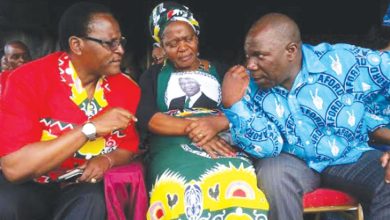Delaying pregnancy saves futures
Mary Chikopa of Kaligwenjere Village in Neno District “would have dropped out of school” because of pregnancy had she not laid her hands on contraceptives.
“I first had sex at 13,” says the girl, now aged 15.
Many girls in her rural setting under Traditional Authority Symon have an early sex debut, one of the reasons nearly half of women in Malawi marry before their 18th birthday and a third fall pregnant by the age of 19.
Mary, a Standard Seven learner at Tsanjalamwimba Primary School, says she was lured into premarital sex following erotic lessons she got at a week-long initiation ceremony.

She recalls: “During the rite of passage from girlhood to adulthood, my peers and I were taught how to satisfy a man in bed and I wanted to practise what I had learnt in preparation for marriage.”
Neno district social welfare assistant Mary Malunga says the cultural practice lures girls into sexual activities “as some seek to try out what they learn”.
However, long distances to health facilities, cultural norms and deep-rooted misconceptions about contraceptives prevent sexually active girls from accessing preventive methods of their choice, exposing them to unprotected sex that fuels child marriage, teen pregnancy and sexually transmitted infections (STIs), including HIV.
“These avoidable pregnancies and child marriages contribute to high school dropout rates among girls,” says Malunga. “This affects the girls’ health and chances in life.”
In 2019, Neno recorded 1210 teen pregnancies.
Then Mary had just undergone the traditional rite of passage.
However, she steered clear of unsafe sex after Community Action for Sustainable Development (Casdo) started implementing an initiative to increase access to sexual and reproductive health (SRH)services and information among adolescent girls.
This is part of Securing Children’s Rights through Education and Protection (Screp) programme the organisation is implementing in partnership with Save the Children Malawi to address barriers that hinder children from living to their full potential.
The project funded by Norad spearheaded the formation of 10 youth clubs and trained 20 community-based agents who equip the youthful majority with life skills to make informed decisions about their bodies and futures.
The youthful community distribution agents offer their peers easy and descreet access to SRH services, including modern contraceptive methods.
The project also intensifies youth-friendly outreach clinics in partnership with Matope Health Centre to make young people aware of the dangers of unprotected sex.
Health surveillance assistant Casper Mtambo says: “These activities have helped clear myths and misconceptions about sex and contraception.
“This has increased uptake of contraceptive methods among the youth, who now understand that apart from exposing them to STIs, early pregnancies fuel dropout rates, unsafe abortions, complicated childbirths and deaths.”
The initiative provides the health workers with continuous professional development courses for enhanced provision of youth-friendly services.
During a visit last Wednesday, Justin Nzipita was seen replenishing condoms and emergency pills from Matope Health Centre for his peers such as Mary to get the service in the comfort of their homes.
The community-based distribution agent in Kaligwenjere Village cycled over 15 kilometres in the scorching sunshine to the facility just to ensure that Mary, who aspires to become a police officer, can remain in school despite being sexually active.
“I want to prevent STIs and delay pregnancy because I have a dream. I insist on safe sex. I am certain I will complete my education and achieve my goal,” she says.
Malunga says keeping girls in school is pivotal to breaking the vicious circle of poverty and social exclusion.
“When they finish school, girls earn more income than dropouts. This gives them a say over their bodies, life and future. The dropouts due to early pregnancies that end in child marriages are most likely to have more children and worse health and economic outcomes,” she explains.
Fly Nandolo, a member of Chikavumba Youth Club in Kaligwenjere Village, says discretly putting contraceptives in the hands of sexually active young people has shattered a climate of fear that exposes them to early pregnancies and marriages.
“It was costly to travel such a long distance just to get a condom. Since 2019, we get our favourite contraceptive methods right here,” he says.
Anthony Sandiyang’ane, coordinator of adolescent and youth health friendly services at Neno District Health Office, commends the programme for increasing the uptake of contraceptives among the youth.
“The support has taken us to hard-to-reach areas to provide quality services. Apart from having basic contraceptive methods in their localities, the use of community-based distribution agents has encouraged the youth to embrace the services as it is easy to seek them from a fellow,” he says.
Since 2019, the project has offered 16 374 young people vital life skills.
Casdo executive director David McPherson Chidakwa says the organisation is determined to protect girls from sexual abuse.
“We want youth to have a comprehensive access to SRH services to fight against teen pregnancies and child marriages so that they can remain in school and uplift their communities,” he says.
Screp child protection manager Tumbikani Kaonga says the initiative seeks to ensure every child learns and grow up in safe communities.




